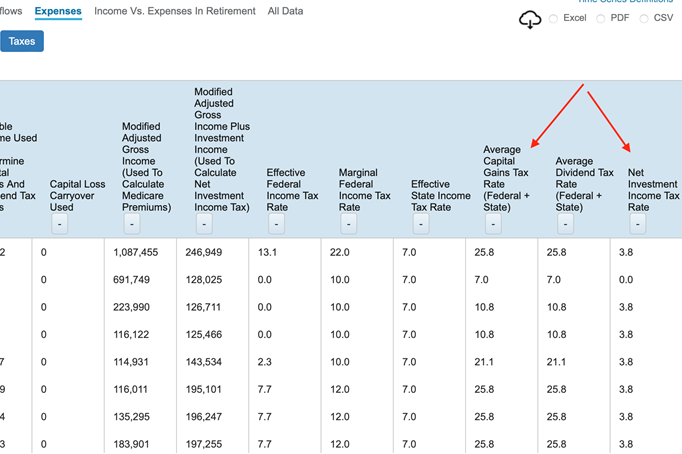Key Points
- Gifting stocks to your children can help give them a good foundation for their financial future.
- The exemption that increased the lifetime gift and estate tax limit to today’s limit is slated to sunset on January 1, 2026.
- Donating stock allows you to avoid paying capital gains taxes and maximizes your charitable deduction.
You may have heard of donating stock to a charity, but have you heard of giving stock to another person, or your kids? Gifting stock is easier than most people think - you can gift it to your kids by transferring the stock into a custodial account or to another adult via a simple stock transfer. Let’s discuss the potential benefits of gifting stocks and how to go about it.
When deciding which stock to gift, tax professionals typically advise to gift the stock with the highest gain. Since minors cannot own stocks, the funds will need to be transferred into a custodial account, which the child can access when they hit a certain age, typically 18 or 21 depending on the state.

Due to the highly appreciated stock in this couple’s portfolio, they are projected to incur very high Capital Gains and get hit with the Net Investment Income Tax.
It is worth noting that gifted stock falls under the annual gift tax exclusion, which in 2024 is $18,000 per person, meaning one person can gift $18,000 worth of stocks/cash to another individual without incurring gift tax.
There is no limit on gifts to spouses and dependents. The gift tax, which can range from 18% to 40%, only needs to be paid when gifts exceed the lifetime gift tax limit, which in 2024 is $13.61 million. If your annual gift exceeds the gift tax limit, it will simply be deducted from your lifetime exemption limit, and no taxes are immediately owed.
The exemption that increased the lifetime gift tax limit to today’s amount is slated to sunset on January 1, 2026, and the limit will revert to 2017 levels, adjusted for inflation. This would reduce the lifetime gift tax limit to around $7 million for individuals and $14 million for married couples, around half of what it is now, unless congress makes the change permanent.
Donating Stocks to a Charitable Organization
As mentioned briefly above, you can also donate stock to a charity. Donating stock to a nonprofit can be a great way to increase the value of your gift, benefiting both you and the charity.
Donating stock allows you to avoid paying capital gains taxes and maximizes your charitable deduction – provided you meet certain conditions. To reap the most reward of your charitable stock donation, you must meet the following conditions.
The stock must have appreciated in value. By gifting appreciated stock, you avoid paying capital gains tax, which increases the value of your gift. However, if the stock has lost value, you are better off selling the stock and realizing the capital loss. You can then donate the proceeds from the sale.
You must have owned the stock for more than one year. If you have owned the stock for less than one year, it is considered a short-term holding and you would only be able to deduct the purchase price, not the appreciated fair market value.
Gifting stocks to your children can help give them a good foundation for their financial future. It can also help you avoid paying capital gains tax on appreciated stock. If you own a stock with a lot of gains in it, and you go to sell it, you will be subject to long-term or short-term capital gains taxes. However, if you gift the stock to your kids, the capital gains will be transferred with the stock, and they would most likely pay less (or none) in capital gains tax when selling the stock.
The tax deduction is only relevant if you itemize your return, so if the standard deduction makes more sense for you, the charitable contribution won’t help reduce your tax bill.
Your chosen charity must also be recognized as a charitable organization/nonprofit by the IRS. You can visit the IRS Tax Exempt Organization Search tool to see if your organization qualifies.
Donor-Advised Funds
Another less well-known but great way to maximize your charitable contribution (and tax deduction), is to open a charitable gift account (also known as a donor-advised fund).
Donor-advised funds are offered by many financial institutions and allow you to make contributions in the form of cash or stocks to your own charitable fund, which you can later donate from when you want. This allows you to get all the tax benefits of donating directly to a charity, without the obligation to select where to donate the funds right away.
Your contribution can also be invested which means the investments can grow tax free before being donated. Another benefit of a donor advised fund is that you can collate multiple years of contributions, and deductions, into one year so that you can exceed the standard deduction and itemize your deductions. You can then spread out your donations over however many years you would like and still get the tax deduction.
It is worth noting that when you make a charitable donation from a donor advised fund, the organization must be recognized as a charity by the IRS.
Estate Planning
Gifting stock can, and should be, part of your estate planning strategy if you are a high net worth individual. By giving away stock before you pass away, you can reduce the size of your taxable estate and therefore reduce the liability for estate taxes.
In 2024, the federal estate tax limit is $13.61 million per individual. Just like the lifetime gift tax exclusion, the exemption that increased the estate tax to today’s limit is slated to sunset on January 1, 2026, and the exemptions will revert to 2017 levels, adjusted for inflation. This would reduce the estate tax limit to around $7 million for individuals and $14 million for married couples. You may also be subject to state level estate/inheritance taxes which have a much lower threshold.

Using WealthTrace, you can view your projected Net Worth at the end of your plan. This will help give you an estimate of whether you may incur estate or inheritance tax.
Bottom Line
Gifting stocks can be a great way of sharing or distributing your wealth, while benefiting both the giver and the recipient. Staying up to date on estate and gift tax regulations can help your heirs save thousands, if not millions, upon your passing. WealthTrace can help you calculate your future Capital Gains Tax rates and your Net Worth at the end of your plan.
Does it make sense for you to gift stock? To find out, sign up for a free trial of WealthTrace and build your financial and retirement plan today.